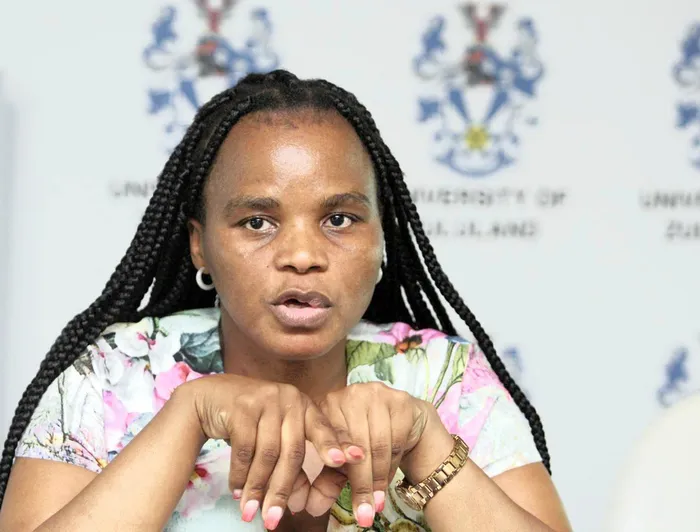Funding crisis in KZN Education Department, R900m pledged 'not enough'

Sadtu provincial secretary Nomarashiya Caluza says all outstanding allocations need to be paid.
Image: Independent Newspapers Archives
The R900 million pledged by the provincial government to tackle the funding crisis in the KwaZulu-Natal Education Department is insufficient to deal with all the outstanding issues plaguing the province’s schools.
This is according to a political party and labour union who said yesterday that more funding was needed. One source claimed that an additional R700m was needed.
Last week, the provincial government committed to providing R900m for schools and for norms and standards funding after labour unions downed tools, which led to the disruption of exams at some schools.
There had been reports that, as a result of the failure to disburse the funds, some teachers have been using their own funds to pay for school operations. Some school principals have claimed they are borrowing money to run school operations.
This failure comes amid concerns that the numerous budget cuts by the national government have crippled the department financially. KZN Premier Thami Ntuli had said R900m has been secured to clear outstanding norms and standards payments, with disbursements to schools expected within three weeks.
He also said the filling of teaching posts and timely payment of permanent and substitute educators would be prioritised, compensation for Grade R practitioners will be reviewed, and payments to National School Nutrition Programme (NSNP) service providers will be expedited to ensure uninterrupted food deliveries to schools.
DA spokesperson Sakhile Mngadi noted the announcement from the Premier’s Office regarding the allocation of R900 million to schools for norms and standards funding but said it was not enough.
This funding is needed for operational costs, including the purchase of stationery, cleaning materials and to pay for municipal services, including water and electricity.
He said close to R700 million additional funding was needed to deal with all the issues.
“While this is a step in the right direction, it is nowhere near enough to address the real crisis. The Department of Education is sitting with unpaid accruals, and hundreds of schools across the province are struggling to function due to months of delayed payments,” Mngadi stated.
He also said that the protest by teacher unions, the South African Democratic Teachers Union (Sadtu), had disrupted exams in some schools. “Sadtu’s action has disrupted primarily rural districts, with some exams being cancelled. The department isn’t forthcoming about when the matter will be resolved.”
Sadtu has warned that its members will continue with its work-to-rule campaign and union members will work the seven hours a day they are contracted to work. Teachers, especially those who teach grade 12, also hold extra morning, afternoon and weekend classes, which they are not paid for.
Sadtu provincial secretary Nomarashiya Caluza commented, “The money (R900m) is enough to cover the outstanding allocation to schools, which was supposed to be paid by May. What the union is fighting for is the allocation for May 2025 and the outstanding allocation for 2024. The union members are still working the contracted hours of 7 hours,” said Caluza.
Regarding the exams, Sadtu said it has observed inconsistencies, with some schools cancelling exams while others proceeded as planned. The union said departmental leadership should provide clear guidance to ensure uniformity across all districts.
The National Teachers’ Union (NATU) said the intervention by the KwaZulu-Natal Premier was necessary. The union said its recent campaign, which included pickets at schools and district offices, has successfully pressured the provincial government to act on education funding.
Thirona Moodley, provincial CEO of the National Professional Teachers’ Organisation of South Africa, said the financial challenges in the province have a direct impact on teaching and learning.
“The silence of the department is deafening and unacceptable. The department has shown no effort to improve the current circumstances. We have no substitutes in schools, and schools are not being paid their financial allocations. How do we expect schools to function? The department has collapsed, and Napotosa calls on the DBE to urgently intervene as the province has failed. When will it be enough?”
She added that there had been some disruption to exams due to the crisis, stating, “Some schools did not have the resources to print exam papers, but I did not have many of my schools report this to me.”
KZN Education Department spokesperson Muzi Mahlambi stated that they are in serious engagement with Sadtu. “There is now common ground, and we are just attending to the modalities.”